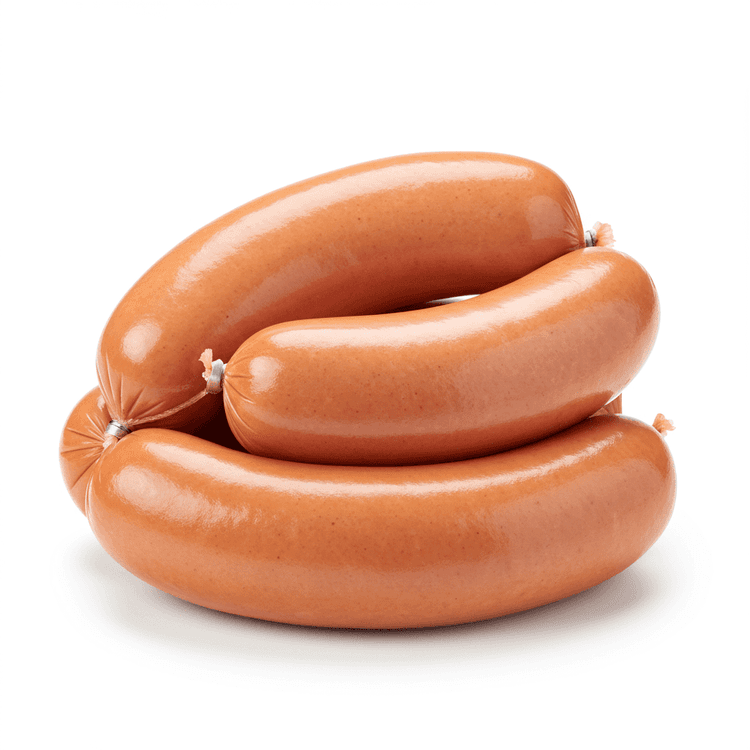
Hot Dog
A hot dog, also known as a frankfurter or wiener, is a cooked sausage traditionally made from cured beef or pork, or a combination of both. It's characterized by its smooth texture, savory flavor, and distinctive smoky aroma. Typically served in a sliced bun, hot dogs are a popular and versatile food item. Their appearance is generally cylindrical, ranging in color from pale pink to reddish-brown, depending on the curing and smoking process. Hot dogs come in various sizes and styles, catering to a wide range of preferences. Whether boiled, grilled, or steamed, hot dogs provide a satisfying and classic culinary experience.
Common Uses
- Hot dogs are frequently grilled or barbecued for a smoky flavor, then served in a bun with toppings like mustard, ketchup, relish, and onions, creating a classic cookout meal.
- Hot dogs can be boiled or steamed, offering a quick and easy meal option perfect for busy weeknights or casual gatherings.
- Sliced hot dogs are often added to mac and cheese, providing a meaty and savory element to the cheesy pasta dish. This makes for a comforting and kid-friendly meal.
- Hot dogs can be wrapped in dough or pastry and baked to create pigs in a blanket or corn dogs, which are popular appetizers or snacks.
- Hot dogs are sometimes diced and added to omelets or breakfast scrambles, providing a salty and flavorful protein boost to the morning meal.
- Hot dogs can be used as a base for chili dog recipes, topped with chili con carne, cheese, and other desired toppings for a hearty and satisfying dish.
Nutrition (per serving)
Nutrition (per serving)
Calories
151.0kcal (7.55%)
Protein
5.8g (11.52%)
Carbs
2.4g (0.87%)
Sugars
0.7g (1.44%)
Healthy Fat
6.7g
Unhealthy Fat
5.2g
% Daily Value based on a 2000 calorie diet
Nutrition (per serving)
Calories
151.0kcal (7.55%)
Protein
5.8g (11.52%)
Carbs
2.4g (0.87%)
Sugars
0.7g (1.44%)
Healthy Fat
6.7g
Unhealthy Fat
5.2g
% Daily Value based on a 2000 calorie diet
Health Benefits
- Provides protein, essential for muscle building and repair.
- Source of iron, supporting healthy red blood cell production and energy levels.
- Contains B vitamins, important for nerve function and converting food into energy.
- Can be part of a balanced diet when consumed in moderation and paired with nutrient-rich foods.
- Offers minerals such as phosphorus, contributing to bone health.
Chefadora AI is here.
Experience smarter, stress-free cooking.
Storage Tips
Hot dogs should always be stored in the refrigerator. Keep unopened packages refrigerated and use by the 'use-by' date on the package. Once opened, hot dogs should be consumed within a week. For longer storage, hot dogs can be frozen. Wrap them tightly in freezer wrap or place them in a freezer-safe bag to prevent freezer burn. Thaw frozen hot dogs in the refrigerator before cooking.



